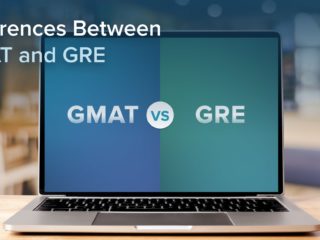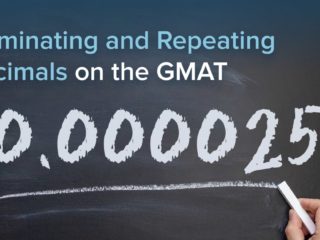Last Updated on May 9, 2023
GMAT OFFICIAL GUIDE DS
Solution:
We need to determine the total number of coins that Bert and Claire have. Let’s define two variables.
b = the number of coins that Bert has
c = the number of coins that Claire has
Thus, we know that b + c = total number of coins Bert and Claire have.
Statement One Alone:
Bert has 50 percent more coins than Claire.
From the information in statement one we can create the following equation:
b = 1.5c
Without knowing b or c, statement one alone is not sufficient to answer the question. We can eliminate answer choices A and D.
Statement Two Alone:
The total number of coins that Bert and Claire have is between 21 and 28.
From statement two we know that 21 < b + c < 28. However, we cannot determine the value of b + c, so statement two alone is not sufficient to answer the question. We can eliminate answer choice B.
Statements One and Two Together:
From statements one and two we know that b = 1.5c and 21 < b + c < 28.
Since b = 1.5c, we can substitute 1.5c for b in the inequality 21 < b + c < 28.
21 < 1.5c + c < 28
21 < 2.5c < 28
21/2.5 < c < 28/2.5
210/25 < c < 280/25
8 2/5 < c < 11 1/5
Because c must be an integer, we know that 9 [Symbol] c [Symbol] 11. Thus c could equal 9, 10, or 11.
However, because both b and c must be integers, the only value for c that will make b an integer in the equation b = 1.5c, is c = 10.
Thus, b = 1.5 x 10 = 15 and b + c = 15 + 10 = 25. Statements one and two together are sufficient to answer the question.
Answer: C



